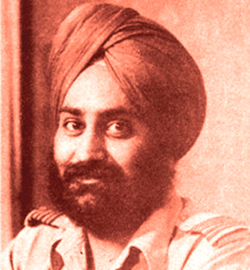INDIAN ARMED FORCES CHIEFS ON OUR RELENTLESS AND FOCUSED PUBLISHING EFFORTS

The insightful articles, inspiring narrations and analytical perspectives presented by the Editorial Team, establish an alluring connect with the reader. My compliments and best wishes to SP Guide Publications.

"Over the past 60 years, the growth of SP Guide Publications has mirrored the rising stature of Indian Navy. Its well-researched and informative magazines on Defence and Aerospace sector have served to shape an educated opinion of our military personnel, policy makers and the public alike. I wish SP's Publication team continued success, fair winds and following seas in all future endeavour!"

Since, its inception in 1964, SP Guide Publications has consistently demonstrated commitment to high-quality journalism in the aerospace and defence sectors, earning a well-deserved reputation as Asia's largest media house in this domain. I wish SP Guide Publications continued success in its pursuit of excellence.
Mehar Singh (1915–1952)

In November 1947, Air Commodore Mehar Singh insisted on being the first to land a Dakota laden with supplies and reinforcements at a temporary airstrip in Poonch that had been invaded by Pakistan-backed irregulars. Within six days, 210 tonnes of supplies were delivered and Poonch was saved from certain capture.
Reverberations of the Turmoil that has paralysed Jammu and Kashmir bring to mind heroes who contributed to the defence of the strategically important state following its accession to India in 1947. Foremost among them in aviation circles was perhaps Air Commodore Mehar Singh. Mehar Singh—affectionately called Mehar Baba—was born on March 20, 1915 in Lyallpur district (now Faisalabad in Pakistan). He joined the Royal Indian Air Force (RIAF) and was sent to Cranwell for training before being commissioned in August 1936.
Soon after his return to India, Mehar Singh joined the No. 1 Squadron and was launched into offensive air support operations over the wild and forbidding mountains of the North West Frontier Province. Those were free and easy days and a pilot’s exploits dictated solely by his courage, skill and endurance. Mehar Singh flew fighters, bombers and transport aircraft—whatever was available. Once he was attacking a group of armed tribesmen in a particularly wild valley when the fuel tank of his Wapiti was hit by ground fire. Fortunately the aircraft did not burst into flames, but he had to nevertheless crash land. Crawling out of the wreckage, the pilot and the gunner managed to evade the hostile tribesmen throughout the night and make their way to safety. Very next day saw Mehar Singh back in the cockpit. During World War II, he commanded No. 6 Squadron, equipped with Hurricanes, and led it admirably in the Burma theatre. In 1944, he was awarded the Distinguished Service Order for his exceptional performance—the only Indian pilot ever to be so honoured.





